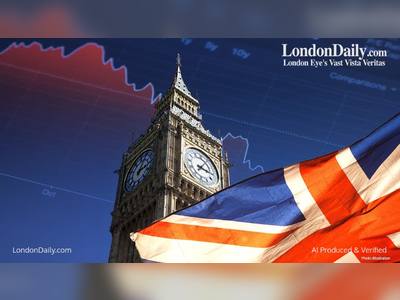Wealthy New Yorkers Weigh Second Homes as the ‘Mamdani Effect’ Ripples Through Luxury Markets
Brokers in Miami, Palm Beach and Greenwich report rising inquiries from high-income New Yorkers anticipating tax and policy shifts under mayor-elect Zohran Mamdani
Even before Zohran Mamdani formally assumes office as New York City’s mayor, his proposed tax increases on residents earning more than one million dollars a year are already influencing behaviour at the top of the real-estate market.
Luxury brokers in Miami, Palm Beach and Greenwich say a growing number of affluent New Yorkers are quietly exploring second homes or backup residency options, not as a dramatic flight but as a hedge against potential fiscal and regulatory changes.
In Miami, agents describe an atmosphere of pre-emptive adjustment.
Prices in the most exclusive neighbourhoods have risen so sharply, one broker said, that “thirty million is the new twenty”.
Sellers are already asking whether Mamdani’s election might push wealthy buyers south, though agents urge them to wait until any new tax policies are actually implemented.
Another experienced broker explains that the shift is subtle: families who once hesitated are now assessing their alternatives with greater urgency, often considering a secondary residence rather than uprooting their lives mid-school year.
Palm Beach, long a magnet for financiers and executives, is seeing interest from New Yorkers who describe a desire for a full lifestyle change rather than a temporary retreat.
According to one agent, buyers cite worries about future tax exposure and personal-safety trends in the city.
For now, these concerns drive conversations more than transactions, but local brokers expect a larger wave if New York’s fiscal environment does tighten.
Greenwich, Connecticut, a classic refuge for Manhattan’s upper tier, has already seen a measurable shift.
Ultra-luxury sales climbed following Mamdani’s primary victory, with top-tier home prices rising from roughly fourteen point nine million dollars before his win to around nineteen point seven million afterwards.
Brokers credit both record stock-market gains, which leave families with substantial unrealised profits to redirect into real estate, and a sense that securing a suburban foothold is prudent ahead of any policy changes.
Yet the picture within New York is far more complex than predictions of an exodus suggest.
In the week of Mamdani’s election, the city logged forty-one contracts for homes priced above four million dollars, the highest weekly total since late May. Analysts note that wealthy residents often respond to political shifts by diversifying rather than abandoning the city—maintaining a primary residence while adding a second home for stability, tax flexibility or lifestyle reasons.
The true long-term impact of the "Mamdani effect" will depend on how assertively the new mayor pursues his agenda once sworn in, and how successfully he reassures business leaders and high-earning residents about their place in the city’s future.
For now, the wealthiest New Yorkers appear not to be fleeing, but preparing—balancing loyalty to the city with a pragmatic desire to keep every option open.
Luxury brokers in Miami, Palm Beach and Greenwich say a growing number of affluent New Yorkers are quietly exploring second homes or backup residency options, not as a dramatic flight but as a hedge against potential fiscal and regulatory changes.
In Miami, agents describe an atmosphere of pre-emptive adjustment.
Prices in the most exclusive neighbourhoods have risen so sharply, one broker said, that “thirty million is the new twenty”.
Sellers are already asking whether Mamdani’s election might push wealthy buyers south, though agents urge them to wait until any new tax policies are actually implemented.
Another experienced broker explains that the shift is subtle: families who once hesitated are now assessing their alternatives with greater urgency, often considering a secondary residence rather than uprooting their lives mid-school year.
Palm Beach, long a magnet for financiers and executives, is seeing interest from New Yorkers who describe a desire for a full lifestyle change rather than a temporary retreat.
According to one agent, buyers cite worries about future tax exposure and personal-safety trends in the city.
For now, these concerns drive conversations more than transactions, but local brokers expect a larger wave if New York’s fiscal environment does tighten.
Greenwich, Connecticut, a classic refuge for Manhattan’s upper tier, has already seen a measurable shift.
Ultra-luxury sales climbed following Mamdani’s primary victory, with top-tier home prices rising from roughly fourteen point nine million dollars before his win to around nineteen point seven million afterwards.
Brokers credit both record stock-market gains, which leave families with substantial unrealised profits to redirect into real estate, and a sense that securing a suburban foothold is prudent ahead of any policy changes.
Yet the picture within New York is far more complex than predictions of an exodus suggest.
In the week of Mamdani’s election, the city logged forty-one contracts for homes priced above four million dollars, the highest weekly total since late May. Analysts note that wealthy residents often respond to political shifts by diversifying rather than abandoning the city—maintaining a primary residence while adding a second home for stability, tax flexibility or lifestyle reasons.
The true long-term impact of the "Mamdani effect" will depend on how assertively the new mayor pursues his agenda once sworn in, and how successfully he reassures business leaders and high-earning residents about their place in the city’s future.
For now, the wealthiest New Yorkers appear not to be fleeing, but preparing—balancing loyalty to the city with a pragmatic desire to keep every option open.










